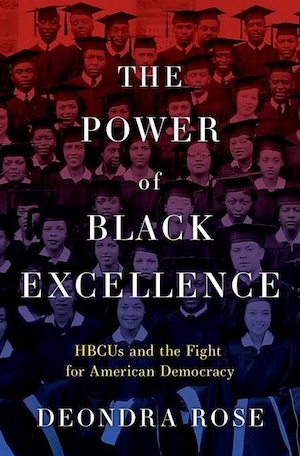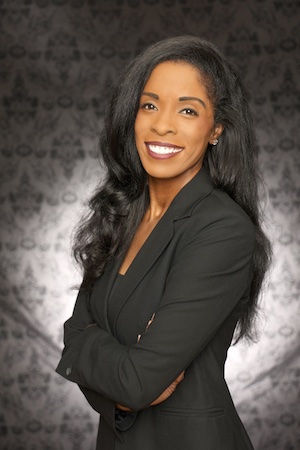By Serena Broome
Since the inception of the first Historically Black College and University (HBCU) in 1837, HBCUs have created profound political change. In a society that disempowered African Americans, changemakers from HBCUs arose to further American democracy, altering the course of history.
Deondra Rose’s new book, The Power of Black Excellence: HBCUs and the Fight for American Democracy (Oxford University Press, 2024) shares the powerful story of HBCUs and their impact on American democracy. Her work is critical as the role of HBCUs in democracy is often unaddressed in the curriculum at American educational institutions. While most may be aware that HBCUs expanded access to education for African American students, Rose’s research specifically examines the components of HBCUs’ education that promotes powerful political engagement. As a political historian, Rose provides compelling analysis in her book. “The Power of Black Excellence: HBCUs and the Fight for American Democracy draws on archival analysis, empirical analysis of survey data, and more than one-hundred interviews with HBCU alumni to explore the powerful impact that HBCUs have had on American political development,” Rose said.
At the Sanford School of Public Policy at Duke University, Rose (ΦBK, University of Georgia) is the Kevin D. Gorter Associate Professor of Public Policy with secondary appointments in the Department of Political Science and Department of History. While serving as the Director of Polis: Center for Politics at Duke University, she has been committed to fostering the political engagement of her students.

In her book, Rose reveals important pedagogical insights about the politically empowering components of an HBCU education. “HBCUs are a diverse set of educational institutions unified by a strong commitment to the unabashedly political work of recognizing, cultivating, and celebrating Black excellence,” Rose said. “During the 19th and 20th centuries, they created transformative educational and intellectual spaces where leading Black thinkers like Anna Julia Cooper, W.E.B. Du Bois (ΦBK, Fisk), Booker T. Washington (honorary ΦBK, Harvard), Ida B. Wells, and Carter G. Woodson developed pioneering scholarship that pushed the boundaries of Americans’ understanding of concepts like race, justice, and citizenship . . . they have offered Black students—and students from all racial and ethnic backgrounds—access to transformative educational experiences that promote active democratic engagement.”
Rose’s book demonstrates the importance of a liberal arts education for the preservation of our democracy and the ideals that form the fabric of American society. “In unpacking the roots of HBCUs’ powerful educational approach, this study highlights the significance of liberal arts and sciences education, which prominent intellectuals like W.E.B. DuBois viewed as essential for developing Black leaders who could disrupt systems of discrimination and racial oppression,” Rose explained. “From history to philosophy, to languages, and beyond, broad study of diverse subjects yields knowledge and skills that are essential to the development of strong leaders.”
Rose’s book, the product of six years of in-depth research, offers invaluable knowledge about American democracy and, especially, its future. HBCUs continue to provide vital educational opportunities that encourage political participation for students of all backgrounds.
Serena Broome graduated early from UC Davis majoring in political science. She inducted into Phi Beta Kappa during her junior year. UC Davis is home to the Kappa of California chapter of Phi Beta Kappa.
Photo at top courtesy of Deondra Rose.




